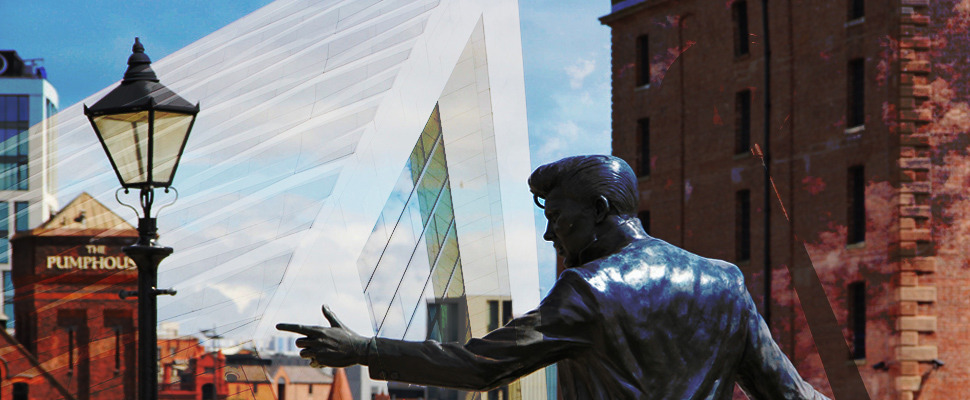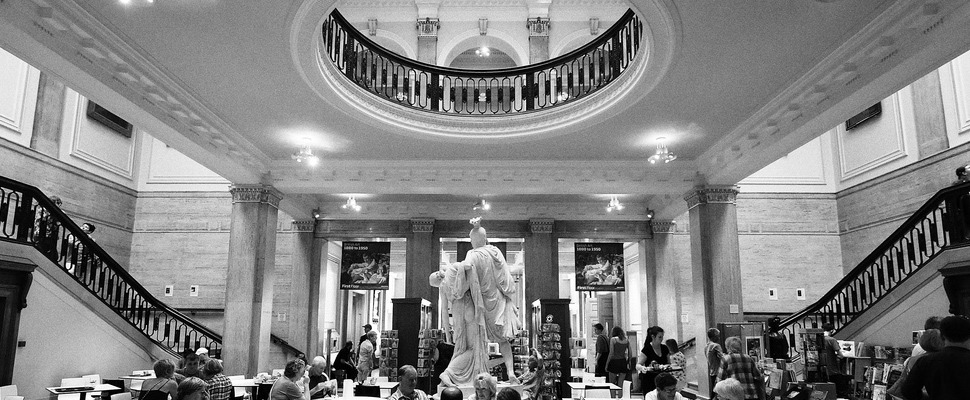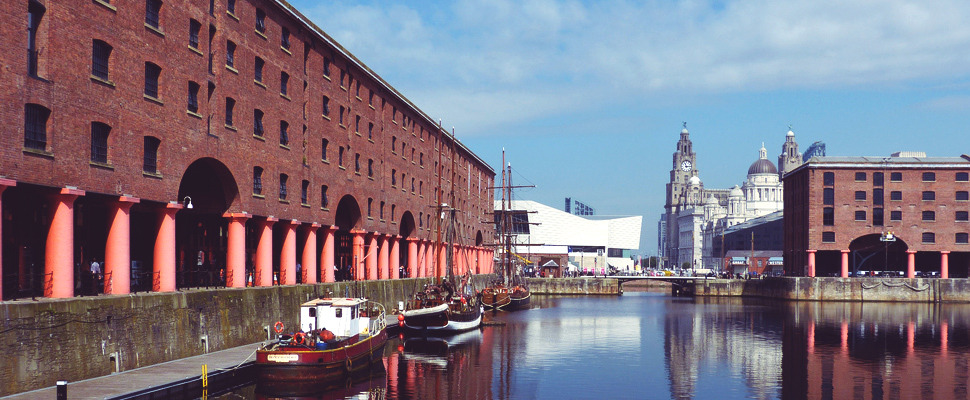‘Go and Get Some Treatment, Mate’: Munby Responds:
Councillor Munby suggests 'we go and get treatment', that we are 'Tea Party Republicans', and that we're blaming him for the entire collapse of the financial system. Read on...
We’ve had a long response from Councillor Munby - sadly, the body of it is a standard letter he’s sent to other people. As you’d imagine, there are lots of statistics thrown up, and plenty of sound bites about Liverpool being ‘the Most Musical City in England’. For once though, it’s good to hear Cllr Munby talking about his love of music for a change, instead of ‘working with the police at a neighbourhood level to challenge anti-social behaviour’ or people enjoying ‘peace and quiet in their homes’. We print it in full, without further comment at this stage.
“Thank you for your reprinting my journalistic gems from the 70s. As for the rest, your comments consist of a mixture of personal abuse and generalised statements. It’s a bit difficult to disentangle the personal and specific from the policy, but here goes. A number of statements have been made on SevenStreets and elsewhere which are untrue. I try to deal with them in order.
1. Your correspondents claim that I am responsible for Static Gallery losing its music licence (it doesn’t - SS)
This is simply not true. Static Gallery have not lost their music licence. There is not even such a thing as a “music licence” these days: music is one of many activities that may be covered by a Premises Licence. Static have a Premises Licence that permits music.
2. Your correspondents claim that I am responsible for issuing a Noise Abatement Notice against Static Gallery as a result of which they have been forced to cancel their live music events. (it doesn’t - SS)
Again, this is simply not true. I have had no part in issuing a Noise Abatement Order against Static Gallery. I understand that following several complaints from local residents, Liverpool City Council issued a warning letter in October 2011 requiring the management of Static to take action, but no action was taken by the management to reduce the noise levels. The Council received more
complaints in November and as a result served a Section 80 Noise Abatement Notice.
The first I first knew about the Notice was when I was asked to take part in a debate at Static about noise and the city centre in February. My agreement to participate in this is perhaps where a lot of your correspondent’s confusion lies. Following the debate I asked Council officers to work with Static and residents to try to resolve the problem. I understand mediation meetings have taken place and discussions continue.
One thing your readers deserve to have clarified is that the Noise Abatement Notice does not prevent Static holding live music events: the claims attributed to the Gallery Director in this matter are very misleading, and baffling: do they have other reasons for cancelling the events yet find it convenient to blame the City Council and me? (there are no claims made by Static in our piece -SS)
3. It has been suggested that the City Council and I personally are responsible for the closure of live music venues and are not committed to promoting live music in the city.
Of course this is not true, and is of course so far from the truth that it’s almost silly. Liverpool is the most musical city in England (Arts Council England report, you may recall); we’re aiming to be a City of Music, and I and all my Council colleagues are highly aware, and very proud of, the enormous importance of music to Liverpool’s identity, culture, economy and future.
An average 68,000 live music attendances happen in the city centre every week of the year. I have dealt with the specific case of Static above but would add the following. The closure of the CUC and the Masque had absolutely nothing to do with the City Council. Venues are likely to close for a variety of reasons including the recession, trends, management choices and business failings. But while some venues close, new ones open or reopen, and we have a lot of venues including The Capstone, Eric’s and Leaf. I, and all of the City Cabinet, recognise the huge importance of music to Liverpool identity, culture and economy: there is a reason that the Arts Council’s research led to Liverpool being named as England’s most musical city in recent years – because it’s true!
In the last few weeks the Council has agreed that the newly re-opened Epstein Theatre (formerly the Neptune) will be licensed to Liverpool Sound City. A fortnight ago we became aware that Urban Strawberry Lunch based in St Luke’s aka the Bombed out Church and only a hundred yards from Static had lost their Arts Council grant.
We met them immediately and organised a rescue package to allow them to keep going. Despite the government imposing cuts of £91 million this year and £50 million next year Liverpool City Council continues to support a wide range of cultural events and activities, much of it based on music. On a personal level I find the comments untrue and offensive, not least as I am a regular gig-goer, helped secure the original funding for Africa Oye and have been a strong supporter of other new music events including the Liverpool Irish Festival and Liverpool Arabic Arts Festival. When Phil Collins tried to turn Parr Street Studios into ‘luxury flats’ I campaigned with my mate Tom Lang to keep them open.
In your comments about me you refer to this as follows: “back in 2005 he called for city centre flat developments to be halted. He saw the continuing rise of city centre apartments as a problem: potentially turning the city into a ‘ghost town’.” Of course you fail to give the context which would rather spoil your story (we don’t: we give a DIRECT LINK to the context- SS)
4. Your correspondent suggests that I and the City Council are pursuing policies that elevate the interests of city centre residents above all other considerations and threaten to undermine the growth of the city centre, the night-time economy and live music venues. In particular it is suggested that people moving to the city centre should know what the area they are moving to is like and accept that noise is part of the city centre environment.
And again, this is not true. As I indicated above in respect of Static the reverse is the case. Residents have lived in the vicinity for decades and Static has moved in recently. More to the point, if residents of Bold Place are the ‘moaning miseries’ implied in some blogs and correspondence why is it that I have never received any complaints about Urban Strawberry Lunch’s activities in the bombed out church opposite, which includes regular live music, film shows, etc? This suggests that the problem may be the venue, not the residents. In reality the attempt to put residents in one camp and venues or musicians in another is ridiculous. People come to live in the city centre because they like the hustle and bustle of urban life and they are some of the main customers for live music venues.
What most city centre residents I’ve spoken to expect is quite a bit of noise going on late at the weekend, but to be able to sleep earlier in the week. We expect restaurants to observe public health regulations and it’s reasonable that live music venues observe environmental health regulations relating to noise and public safety.
Nearly all of them do and where they experience problems we try to manage the process through mediation. We are trying this with Static but it appears that they prefer megaphones to mediation. At the heart of this is people learning to be good neighbours, whether residents, day-time or night-time businesses. If you can’t get on with the people around you it’s going to cause problems
5. The Cumulative Impact Policy (CIP) recently introduced by the Council covering parts of the city centre will prevent new venues opening. The CIP gives the Council’s Licensing Committee the right to consider the potential impact of a new premise receiving an alcohol licence. It can only do this where representations have been made by interested parties opposing the application.
It would still be necessary to show that the application would be likely to increase the risk of anti-social behaviour or crime and disorder. Its impact is likely to be limited and will almost certainly mainly prevent new larger ‘vertical drinking’ establishments opening. In particular smaller music venues would be able to show that they did not conflict with a CIP. It will not affect existing venues, which may well benefit.
Beneath the layers of what are frankly lies and abuse is a fairly obvious political agenda. At the Static debate I called some of the protagonists in the debate “Tea Party Republicans” i.e. a group which in the context of a recession bought on by a failure to regulate the banks blame regulators not the banks. This seems to me to be the position of David Lloyd and some of your bloggers. Liverpool is facing millions of pounds of cuts from the Con Dem government leading to the loss of thousands of jobs in the public sector.
The banking crisis and the failure to adequately regulate the financial sector has plunged us into recession. This inevitably affects the demand for businesses in the city centre including some venues. Who do you blame? Not the Tories, not the bankers but a local Labour Councillor, city centre residents and the Council’s Environmental Health Team.
David Lloyd asks “should we stay, or should we go”. Go and get some treatment mate would be my advice.
Councillor Steve Munby
SevenStreets will comment at a later date. But please feel free to add your comments to this story. Whether by ‘megaphone’ or other methods, we’d love to hear them.
pic: Thom Isom/ The Double Negative
























Pingback: Seven reasons why Liverpool is still brilliant | Sevenstreets
Pingback: Buskers fear end of Liverpool’s street culture | Sevenstreets